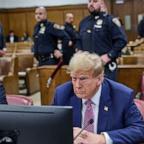Former Treasury secretary Summers adapts his style
WASHINGTON -- On a warm Monday in late April, the president dined with some of the sharpest critics of his handling of the financial crisis. Just that morning, one of his guests, Nobel prize winner Paul Krugman had complained in his New York Times column that the administration "will probably let the bankers off with nothing more than a few stern speeches."
For roughly 90 minutes, over plates of savory roast beef and the first lettuce from the new White House vegetable garden, President Obama and some of the nation's leading economists debated the fine points of bank restructuring and financial bailouts. The half-dozen attendees included another Nobel prize winner, Joseph Stiglitz; former Federal Reserve Board governor Alan Blinder; Harvard University's Kenneth Rogoff; and Jeffrey Sachs of Columbia University.
The dinner represented an unusual moment in official Washington: a president, breaking bread with impassioned, well-credentialed opponents of his signature policy initiative. To some, the episode also underscored a key question about a rumpled figure at the table, who was uncharacteristically quiet much of the evening. As director of the National Economic Council, Larry Summers, 54, is charged with ensuring that the president hears all sides of the complex financial and economic issues confronting him. It's an unlikely role for the opinionated Summers, a brilliant, bulldozing former Treasury secretary with a reputation for chewing through dissenting voices with the same fervor he brings to an undefended buffet table.
"Larry's a debater, and he wants to win," said Stiglitz.
In a 40-minute interview in his West Wing office, Summers says placidly, "I'm trying to make sure the president has access to the best thinking he can have."
"There is a sense within the Treasury Department and within the White House that the changes to U.S. markets are actually going to be less than people expect. Not only are we not headed to European-style socialism, we're not even headed that far from where we were," says David Rothkopf, a Washington, D.C., consultant who worked with Summers in the Clinton administration.
A born economist
Summers was almost literally a born economist. Both of his parents were economists; two uncles won Nobel Memorial Prizes in Economic Sciences. He entered the Massachusetts Institute of Technology at age 16, did graduate work at Harvard University and eventually became one of the youngest tenured professors in Harvard's roughly 350-year history.
A brilliant academic career led to top policy jobs at the World Bank and then in the Clinton administration, where he eventually succeeded Robert Rubin as Treasury secretary.
Summers was deeply involved in the U.S. handling of financial crises in Mexico, Asia and Russia during the 1990s and was a forceful advocate of open markets and deregulation.
After leaving government, Summers returned to Harvard in 2001 as president of the university. It was a rocky interlude, ultimately undone by comments he made in 2005 casting doubt on women's innate aptitude for science and math. The remarks ignited a fierce gender controversy, and Summers resigned the following year. Whatever personal angst the incident caused, his exile turned out to be a profitable one. He took a part-time position advising hedge fund managers at D.E. Shaw & Co. in New York that paid more than $5 million.




